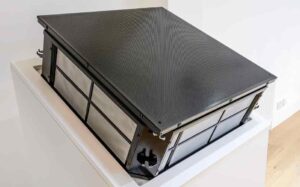Are your EPCs up to the mark?
29th October 2013 Neil Dady, md of Technical Business Solutions, suggests that some current UK Energy Performance Certificates (EPC) may not be up to the mark now, let alone when the standards are revised in 2018.
Neil Dady, md of Technical Business Solutions, suggests that some current UK Energy Performance Certificates (EPC) may not be up to the mark now, let alone when the standards are revised in 2018.
A report by Consultancy firm WSP Group in May found nearly one in five buildings were rated F or G following a survey of more than 4,000 EPCs it had undertaken since the rating became obligatory.
Also, if E-rated buildings were included in being not of an acceptable standard for letting, then the potential failure rate would rise from 17% to 35%, the report noted.
With effect from April 1 2018 it will be unlawful to let buildings with an EPC rating of F or G. If you consider around 20% of our commercial buildings already fall within those categories it’s clear the commercial sector is facing a major challenge.
It’s worth noting that some buildings currently scraping in on an E rating may be re-assessed in 2018 and find themselves relegated to the F category.
EPCs are benchmarked through building regulations that are continually updated and revised, meaning that even buildings with ratings such as E and D may not meet the new standards required in 2018.
Technical Business Solutions has already experienced projects where an existing EPC rating has actually fallen following a revision and reissue of the certificate and this is cause for concern as we move towards 2018.
EPCs, which became mandatory in 2008, are needed whenever a property is built, sold and rented and are valid for 10 years. The certificate contains information about a property’s energy use and typical energy costs and recommendations about how to reduce energy use and save money.
However many older EPCs created during 2008 and 2009 are considered to be of a lesser quality and use default values where efficiency values couldn’t be sourced, this can mask the true rating of the building.
In the early days EPCs were produced without the same level of conventions and quality assurance that are in place today and many older EPCs do not truly reflect the actual condition of the building.
As well as finding instances where an EPC rating has fallen we have also found situations where default inputs have been used lowering the rating artificially.
We would encourage anyone that is responsible for a commercial property with an EPC dated between 2008 and 2009 to revisit the rating and consider if any fabric or mechanical improvements have been carried out would improve the rating? If the existing rating is E or below it would be prudent to contact an Energy Assessor for advice.
Neil Dady is the md of Technical Building Solutions. He is also a founder of the National Association of Air Conditioning Energy Assessors (NAACEA).







